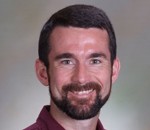 “There is mission without margin.”
“There is mission without margin.”
I’ve heard that sentiment time and time again, used to convey the idea that in the healthcare business, while we all agree we want to take care of people, we must after all, stay financially viable in order to do so. In short, if we don’t succeed as a business, we can’t exist as a care giving enterprise.
There is a certain intuitive logic to this that does seem to ring true, and I’ve usually (either verbally or silently) ended up going along with that argument, regardless of the issue at hand. After all, it makes sense, does it not, that one’s hospital or clinic cannot provide service, if it cannot stay financially afloat?
Recently, however, reflections on three different issues have brought me to the point of not only questioning this principle, but finally feeling that for medicine this is actually a backwards approach that puts our priorities in the wrong order.
- Much effort has been undertaken recently to expand the model of the “patient centered medical home,” (PCMH) (and I am happy that my group has been certified as such). The basic concept is that if it develops enough of the right patient centered systems, we will improve both the quality of our care, and the experience of our patients. All well and good, and I have felt that some of the “PCMH” related changes we’ve made locally have at least improved our processes. Unfortunately, a recent study published in JAMA found that among 32 primary care practices who implemented PCMH components, the only significant change in quality indicators was for nephropathy screening in diabetes, while there were no significant changes in utilization or costs of care (but the participating practices did receive significant bonuses for PCMH participation).
- I sit on the board of my local church, and the organizational budget is one of our regular topics of discussion. Being a faith community, however, our primary goal is not profit, rather it has to do with vision, mission, and ministry. When we discuss finances, the questions are not about how the ministry can maintain the bottom line, but rather how to do our ministry, with the faith that the finances will (in short) be adequate one way or another.
- David Loxterkamp recently wrote a profoundly thought provoking piece, putting the mission of medicine (and family medicine in particular) in clear perspective. In “No mission without the marginalized,” he argues that caring for the poor and destitute, whoever they are and wherever they may be (wherever they call “home”) is fundamental to the nature of medicine.
A JAMA article, a board meeting, and an essay—as I ended up mulling them all over on a long car trip, I realized that the fundamental problem of the systems models and business models in medicine has to do with the fact that medicine is not primarily about systems and business, rather about care and healing. Business is a piece of what we do in medicine, but proper prioritizing requires putting our focus on medicine, with the business piece merely serving to allow us to practice and to care.
Fundamentally, medicine in some ways should have more in common with a faith community, than with the business sector. I am not arguing, and would never claim, that medicine is a religion, or that it should displace any faith community or commitment. But in medicine we do commit to certain values:
- “First, do no harm.”
- “To cure sometimes, to relieve often, to comfort always.”
- The Hippocratic Oath, or a modern adaptation thereof (which, incidentally, does include house calls. “Into whatever homes I go, I will enter them for the benefit of the sick…”).
These are not religious statements of faith, but they are commitments we make in medicine that (should) give us a clear vision of our purpose and our mission.
Don’t get me wrong. I value our business managers, and I am glad that we have talented people who can keep our practices and hospitals financially viable—but so does my church, and there the primary concern is for mission, not for margin.
Rather than, “no mission without margin,” in medicine our focus needs to be on margin in service of mission. Our primary task is the mission, and the margin serves only to support the mission:
“Medicine—the margin is always in support of the mission.”
Competing interests: “I declare that I have read and understood the BMJ Group policy on declaration of interests and I have no relevant interests to declare.”
William E Cayley Jr practises at the Augusta Family Medicine Clinic, teaches at the Eau Claire Family Medicine Residency, and is a professor at the University of Wisconsin, Department of Family Medicine.
